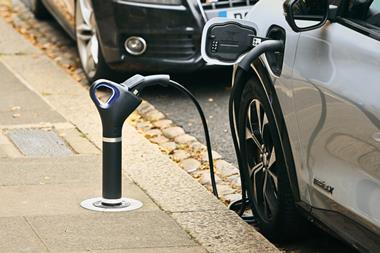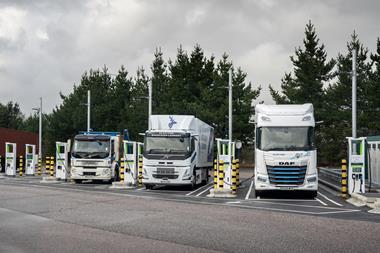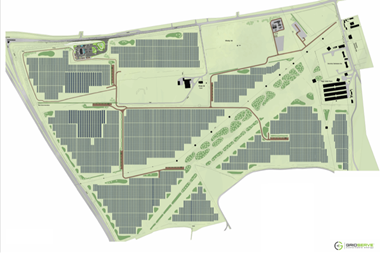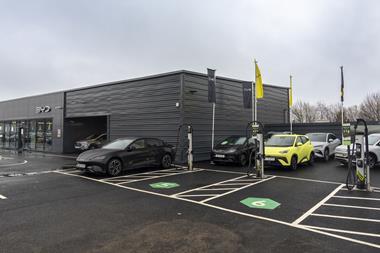
The PRA has welcomed a number of measures that were announced in the Chancellor’s Autumn Budget on Thursday.
PRA executive director Gordon Balmer said: “We welcome the decision taken today by the Chancellor not to reverse the cut to fuel duty. The 5ppl cut previously introduced in March has been essential for families who have no choice but to use their cars.
“While the government has taken a positive first step, there is still much work to be done to help motorists and ensure fuel resilience in the wake of a volatile energy market.
“We are also very pleased with the Chancellor’s decision to provide £13.6bn support in business rates over the next five years. This will give relief to forecourts, who have always worked very hard to keep their communities fuelled and fed during these tough times.
“Finally, I am pleased to see that the Chancellor has recognised the need for a more equitable system of road taxation by extending the vehicle excise duty to include electric vehicles.
“The PRA will continue to engage with the government to ensure support for petrol filling stations continues.”
The ACS also welcomed the business rates support measures which include:
- the business rates multiplier will be frozen at its current level in 2023-24;
- business rates relief for eligible retail and hospitality businesses will increase from 50% currently to 75% in April 2023, up to a maximum of £110,000 of relief per business; and
- a new Supporting Small Businesses Scheme (SSBS) will cap the bill increases for those losing their eligibility for Small Business Rate Relief or Rural Rate Relief to a maximum of £50 extra per month in 2023-24.
ACS chief executive James Lowman said: “We welcome the freeze of the business rates multiplier for another year. The extension and increase in the retail, hospitality and leisure relief scheme will be warmly welcomed by small business in particular. Scrapping downward transition will help the businesses most adversely impacted by the pandemic and other market factors, and the Supporting Small Business Scheme will help those who have grown their business to the point where they lose some business rates relief they previously claimed.
“This package of business rates measures meets our asks to the Chancellor and we are delighted that he has listened. We will continue to work with the Treasury and other departments on modernising the whole business rates system.”
During the statement, the Chancellor Jeremy Hunt announced that the government would accept the recommendations of the Low Pay Commission, keeping the National Living Wage on target to reach two-thirds of median earnings by 2024.
On wage rates, Lowman said: “The increase in the National Living Wage to £10.42 is in line with established government policy to reach two-thirds of median earnings by 2024. This will mean tough decisions for businesses like convenience stores for whom their wage bill is their biggest cost area, and this increase of over 9% will be challenging to bear.”
While domestic support on energy costs beyond April 2023 was set out in the Autumn Statement, there was no announcement about the level of support being provided to businesses in the Spring. Lowman said: “Increases in energy bills are the single biggest concern facing retailers at the moment. We need clarity as soon as possible on what the government intends to do to ensure that convenience stores can keep serving their communities in the new year. Without support on this crucial issue, stores will be facing extremely difficult decisions in the new year.”
James Moore-Martin, regional director – retail at Christie & Co, agreed retailers margins would be squeezed but also suggested there was some good news for forecourts. He said: “Some of the budget measures announced today, including the rise in the National Living Wage, are going to squeeze margins for retailers. Alongside this, consumers are certainly going to be more cautious about spending in 2023 however, the forecourt and convenience sectors are considered ‘essential services’ and have proved to be resilient during hard times, as we have seen over the last three years. As costs go up and the economy becomes more volatile there may also be more opportunities for new independent entrants to the sector.
“For the forecourt sector in particular, the move to make electric vehicles applicable for the vehicle excise duty (VED) from April 2025 will be reassuring for many business owners, as it reiterates that we are still some time away from a significant switch to electric vehicles and demand for forecourts will continue.”
However, the RAC did not believe the change in VED would have much impact on demand for EVs. RAC head of policy Nicholas Lyes said: “After many years of paying no car tax at all, it’s probably fair the Government gets owners of electric vehicles to start contributing to the upkeep of major roads from 2025. While vehicle excise duty rates are unlikely to be a defining reason for vehicle choice, we believe a first year zero-VED rate benefit should have been retained as a partial incentive. But we don’t expect this tax change to have much of an effect on dampening the demand for electric vehicles given the many other cost benefits of running one. The fact that company car tax increases on EVs will be kept low should also keep giving fleets the confidence to go electric which is vital for increasing the overall number of EVs on our roads.”
































1 Readers' comment